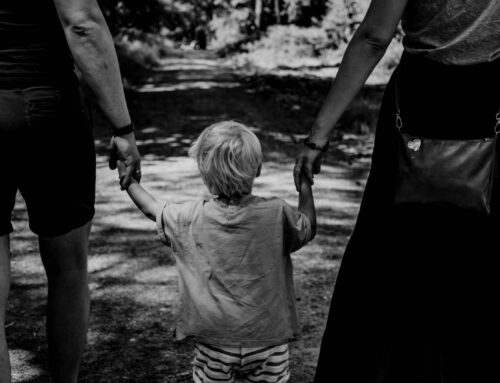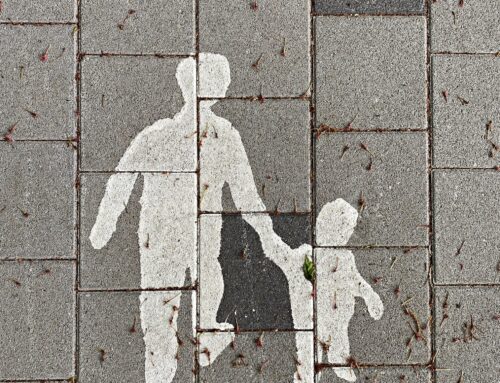Holidays can be an especially emotional time when you are divorced. If this is your first holiday during or after divorce, it is likely your first experience being without your children for part or all of the holiday. This can bring with it a sense of loss for children and parents. It can also bring with it heightened conflicts about time with the children, coordinating time with extended family, gift giving, traditions, and expectations.
The holidays are also a time rich with potential for traditions, rituals, and memory-making. This is why it is so important for you, as a parent, to be mindful of how you handle the holidays for yourself and for your children. Your children will have memories about how they spent their holidays. What do you want them to remember? What do you want them to feel about their family and how holidays were handled?
To celebrate well this holiday season and for seasons to come, consider these 8 tips.
- Approach the holidays from a child-centered, high-end goals mindset. How do you want your children to remember the holidays years from now, when they look back? Do you want them to recall feeling caught in the middle and stressed? Probably not. You probably want them to recall warmth, love, and time together with you celebrating and honoring traditions, new and old. Make it your commitment to create a stress-free, meaningful, fun experience.
- The greatest gift you can give your children is the gift of a conflict-free holiday. Do not make the holidays a battleground for your children. They will come to resent you for it. Make it your priority to avoid conflict with your co-parent. Give them a holiday experience in which they can enjoy each of their parents, make fond memories with each of you, and not be burdened by loyalty conflicts or feeling in the middle of their parents’ conflicts. Children suffer most when parents have conflict about them. Fighting about the holidays directly involves the children and their experience of the holidays. No amount of holiday fun and gifts will make up for the damage such conflict causes. It’s not worth it. No holiday battle victory will be worth the “battle scars” left for your children.
- Clear boundaries and structure can serve to lower conflict. That means, have a clear and specific plan with your co-parent about the holidays, such as when you each will have parenting time with the children, including specific transition times. Make no assumptions. Get out in front of it weeks in advance, clarifying the plans. Minimize opportunity for miscommunication and misunderstanding by communicating clearly about all plans, including any travel or events in which the children are participating. Consider all details, including who is in charge of making sure your child has their dress/bow tie for the holiday performance they are in. Don’t leave anything to chance or to be figured out last minute. This invites conflicts and leaves your children in the middle.
- Not only have a clear plan with your co-parent about the parenting time schedule with the children, but also create a plan for yourself for time when you will not be with your children. Especially in the early post-divorce years, time around the holidays without your children can be a painful reminder of the losses of divorce. Make plans for yourself that include time with family and friends and time for yourself. How will you take care of yourself? What can you do to help you grieve and heal? How will you enjoy the holiday season? What is meaningful to you? In what ways can you benefit from some time to yourself to rejuvenate and feel joy? In what ways do you want to connect with others and with what is meaningful to you about the season? Don’t leave your parent “off-duty” time to chance. Allow yourself time to experience your grief as well as to rebuild your experience of the season.
- Decide how you want to experience the holidays with your children. What makes them special? Divorce is a major transition that can involve lots of change. What are some traditions that you want to maintain post-divorce? Maintaining some traditions and rituals can be a source of comfort in the midst of change. As the holiday season can be hectic, feel free to eliminate experiences that feel more like obligations than have true meaning for you and your children. Focus on those activities, big or small, that you and your children can look back upon with warm memories. What things do your children want to do every year? What feels like a chore? Figure out what you will maintain and what you will let go.
- Create new traditions and rituals! Divorce creates change, but times change anyway. Your children get older and what they care about changes, as may your interests and what you find meaningful. This may be a great time to create some new traditions and make new memories. This applies to your time with your children and your time on your own. Involve the children and make it fun.
- Keep it real. Holidays are rife with hype and sky-high expectations. Perfectionism is rampant. The pressure to do all, be all, buy all, attend all is daunting. Nothing can suck the joy out of the holiday season faster than such high expectations and endless obligations. No one is perfect. No family is perfect. My favorite holiday card of all time was not the card I received with the perfect photo of a smiling, color-coordinated family with the holiday letter detailing all of their high-achieving children’s accomplishments and their family vacation at an enviable destination, it was a letter with funny quotes from their children over the year, detailing their foibles, frustrations, and humanity with love and humor. Bravo! All this to say, keep your expectations low and your plans realistic. Your children want and need your presence and authentic connection, free of stress and conflict. Focus on what’s most important. Often low cost, little things can be the best of all.
- Lead and your children will follow. Your children will feed off of your attitude and your lead. If you focus on making the best of your time together and you focus on making meaning, joy, and memories, they will fall in line with you. If you are stressed, disappointed, cranky and irritated, your children will mirror this. Take care of yourself and take care of them. Stay on the high road and maintain the long view. Focus on what matters most, your children and your connection with them. Practice gratitude and resilience. Your children are watching how you navigate this season and are learning from you. Teach them well.
Struggling to co-parent effectively? Check out The Quick Guide to Co-Parenting After Divorce: Three Steps to Your Children’s Healthy Adjustment
Or consider co-parenting coaching and consultation.
And other divorce related resources at https://gabardi.com/products/






